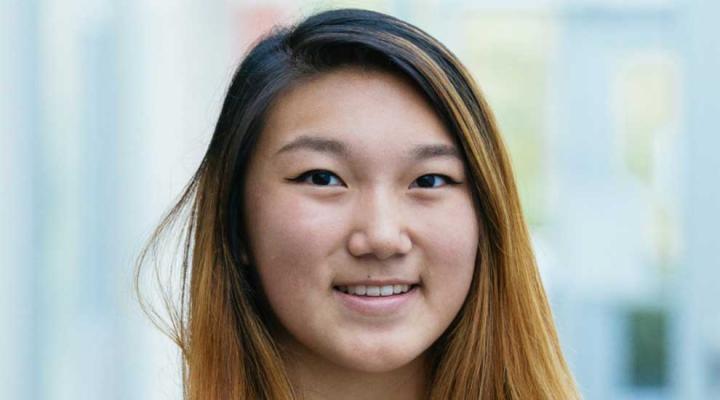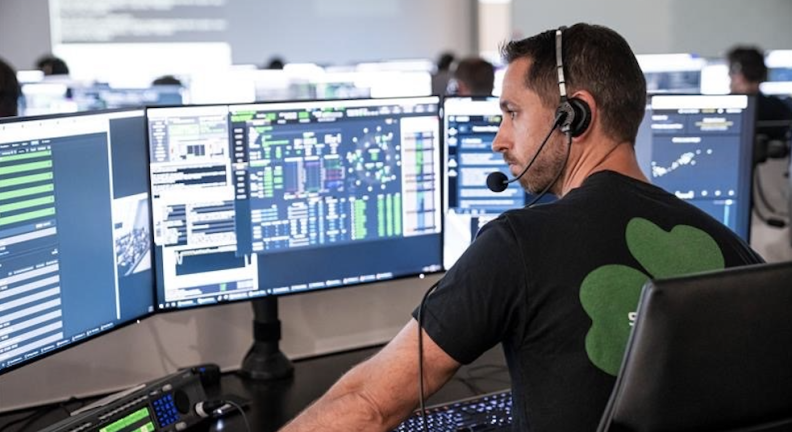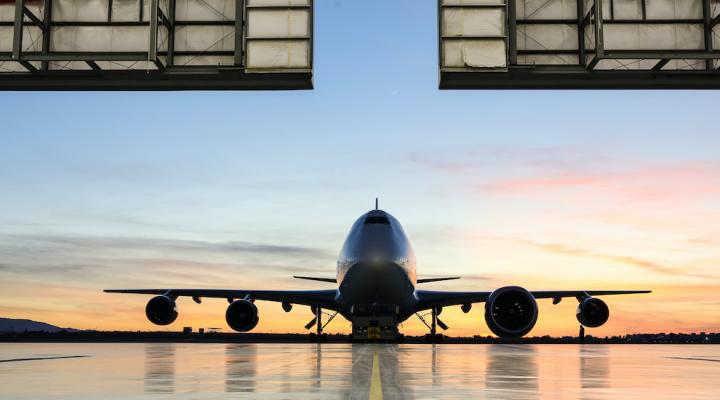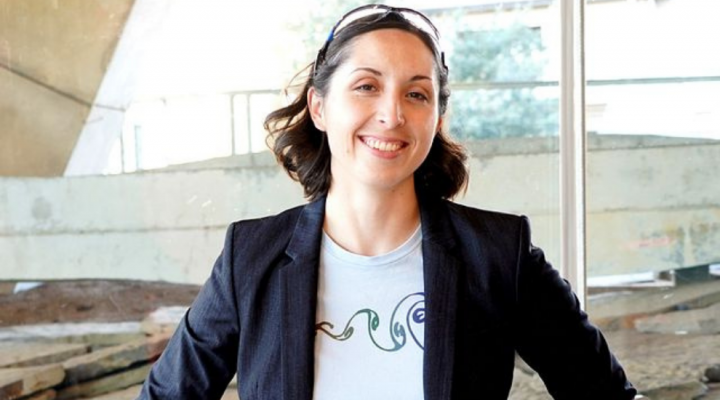Kris Young ’06, M.Eng. ’07 was a program manager of the Cornell University Satellite (CUSat) program in 2006-07 as he earned his M.Eng. degree in aerospace engineering. His first job after college was with Northrop Grumman, where he had a hand in the James Webb Space Telescope, among other projects. Today, he is Director of Space Operations at SpaceX. He is also a new member of the Sibley School’s Advisory Council and will be a featured speaker at the Sibley 150 celebration on campus in April. He sat down with us recently for a discussion of his path from smalltown Williamson, New York to Cornell and on to SpaceX.
Where did you grow up?
I grew up in Western New York State in a very small farm town called Williamson, just outside of Rochester. Not too far away from Ithaca, in fact. My dad’s family were mostly farmers, but many of them were also individuals who liked to tinker with mechanical systems and built a lot of things on their own. My grandfather had a large farm in the area with a lot of cherry trees; cherries are very time consuming to harvest – you have to pick each one individually and place it in a bucket. It’s a painstaking process. And that led him to build one of the first automated cherry shaking machines that is still used today. The device grabs the trunk of the tree and shakes it so a whole bunch of cherries fall all at once. It saves so much time. But this wasn't something he went out and bought the blueprints for. He just figured it out himself and built it.
And I'd say that mentality perpetuated itself through my dad's generation of the family. He has a number of siblings that are also engineers. And then it passed down to both me and my brother. We both worked on the farm, and with farm work, there's a point where it's really good for you and you stay active. But it can also be very laborious. As a kid, I was devising different mechanical systems to pick up all these clippings from trees to make it easier for myself.
So I'd say engineering was very much in our blood. I have a couple of older brothers, the eldest of whom was focused on electrical engineering and software. When I was in high school they taught me how to build a computer. So I came to engineering pretty naturally.
When you were looking at colleges, what interested you in Cornell University and, in particular, Cornell Engineering?
Cornell has an incredibly rich history of agricultural research and I was familiar with that reputation because throughout my childhood, my dad worked with agents from the Cornell Cooperative Extension who would introduce us to new types of fruit trees and farming techniques.
An appreciation for Cornell was in my blood from early on, understanding that there's this place that can innovate and bring in new ideas. I looked around and I wanted to find the best place for me. I wanted to be around the best people. And clearly, for me, that place was Cornell.
I did electrical and computer engineering as my undergrad. I think that was probably because of the influence of my older brothers. As an undergrad my interest tended toward control system types of problems that are similar to what’s taught in MAE. And so it was later, during my M.Eng., that I swapped over to the Sibley School. I was working on CUSat and I loved the interplay between all the different systems and areas of expertise. The boundaries between fields were not cut and dried. It’s a lot like industry where there is an interplay between technical disciplines. They all have to work together to solve complex problems
At Cornell we started with the fundamentals – math, science, physics – that became a foundation that really allowed me to learn a lot of different areas.
Can you tell us about your journey to this point in your career? What was your trajectory into your current position?
Once I finished my M.Eng. I wanted to get my hands dirty. I wanted to have a part in designing, building, testing, and redesigning stuff that was going to space. The iterative part was really super fun. The CUSat project and aerospace engineering M.Eng. program had a number of industry partners. Northrop Grumman was one and they had a very large aerospace arm with several capacities: a satellite division, a ground systems division, military technology divisions, and more.
Through that connection I took a position in their space technology division and worked on a couple of different satellite programs. In 2007, I moved out to Los Angeles for that job and have been in California ever since. I was working initially on the James Webb Space Telescope, so it was really cool to see that launch a couple of years ago. It is very satisfying to see all of the amazing science it has enabled since launch. It was an excellent way to start my career.
About four years later, a colleague of mine left Northrup to join a small, relatively unknown company called SpaceX that was right down the road from where I was working in L.A. I knew the typical career progression at Northrop, and through my friend, was able to see the types of opportunities at SpaceX, especially all of the cool things he was doing. And that’s when I decided to join the SpaceX team.
I guess you could call me a little bit impatient, and I wanted to be challenged professionally – to grow, learn, and do new things. I have always been very motivated by human spaceflight in particular. At the time, SpaceX had just won contracts with NASA to provide cargo transportation services to and from the International Space Station. And I knew the end objective for SpaceX was to make humanity multiplanetary. We didn’t just want to fly cargo – we wanted to fly humans to the space station and eventually to other planets. For me, that was an extremely inspirational goal, and to be a part of that would be my absolute life’s dream. So I applied at SpaceX and ended up transitioning over there back in 2011.
It's been a whirlwind since then, with a lot of challenging, tough problems to solve. For four years I worked as flight systems manager for the Dragon Commercial Resupply Services program building and integrating the vehicles, and then I was senior manager for Dragon Development Engineering for almost another four years responsible for the engineering development of the Dragon crew spacecraft program.
Once I finished the development and production of the first Dragon spacecraft for human spaceflight, I was looking to get more involved in the operations; luckily a position opened up for the Director of Space Operations and I got it. In this role, I am responsible for all of our human spaceflight operations at SpaceX. My team consists of engineers who develop the mission plans; software engineers who build all of the mission planning and console tools; engineers who train the operators and astronauts; a team of doctors who oversee crew medical care; and the flight controllers who fly the mission from our mission control center. I’ve overseen all 11 of our human spaceflight missions we’ve conducted thus far.
I've always been a space geek. So for me, this is an absolute dream to be able to play a small part in this program.
How did Cornell prepare you for what you are doing now?
I left Cornell with two fundamental skill sets I didn't have going in, and together, they are the foundation of everything I've done. Number one is that I learned how to work super hard and number two, I learned how to solve problems. These may sound like very basic things (and in some ways they are), but they are also essential to what I do—and to what engineers do. I graduated knowing I wasn't the smartest person at Cornell. I'm also not the smartest person at SpaceX. But I know that if I work super hard, I can always solve the problems in front of me. Cornell taught me how to do that, and I am forever thankful for that experience.
And then in terms of problem-solving, there are so many times we’re faced with problems – not just in the professional capacity, but also simply in life. I know I can solve these problems. Cornell gave me that skill, and I think it gives everyone that skill. We learn how to break the problem down. We can figure out how to solve it piece by piece, and we can drive to a solution.
It's an incredibly valuable life skill. I have a profound comfort being uncomfortable and facing situations where the answer isn’t easy or immediately obvious. Cornell helped me build that skill. I went in and took all of these hard classes and I was getting my butt kicked in the beginning years of school. But that built the resiliency and intellectual fortitude that are essential for success.
What made you say yes to joining the MAE Advisory Council?
I want to give back. Like I said, I wasn't the smartest, the strongest, or the best person at Cornell.
Cornell, however, invested in me and gave me the time to learn and to grow, and I want to give back by sharing what I've learned throughout my career. It's an opportunity for me to help shape a curriculum that matches what the workplace demands and to provide opportunities to students.
What are you looking for when you are recruiting new talent? What insights can you give current Cornell Engineering students?
A team’s greatest asset is always its people. I spend a lot of time focusing on recruiting and bringing in quality team members – it’s the only way we succeed in solving the impossible. The two most important things for me are a strong command of math, physics, and the engineering fundamentals, along with a deep immersion in the hands-on process of building something, testing it, and making it better.
These are important because I can't tell you the problem you're going to be working on in six months or two years or five years down the road in your career. But if you have a really strong command of engineering fundamentals, chances are you’ll be able to figure out a good solution. And if you have the hands-on experience of building something, trying it out, seeing when it doesn't work, breaking it and then fixing it and making it better, you’ll be an incredibly valuable team member. I don't want someone who has just written something down on paper as a concept. I want to see that you built the idea, tested it to see what worked and what didn't, determined how to make it better, and then took that extra step to actually make it better.
What makes you proud to be a Sibley School alum?
There is such a long history of mechanical and aerospace engineering at Cornell, so it feels good to be a part of that, and not in an arrogant sort of way. I can look back and know that there's this place where I learned and grew. It pushed me to be a better engineer and a better person and what I learned at Cornell helped with how I approach life every day. That is where my pride and my continuing connection to the Sibley School are rooted.
Kris Young will be on campus for the Sibley 150 Celebration on April 25, 2024 and he will be part of a panel discussion.






